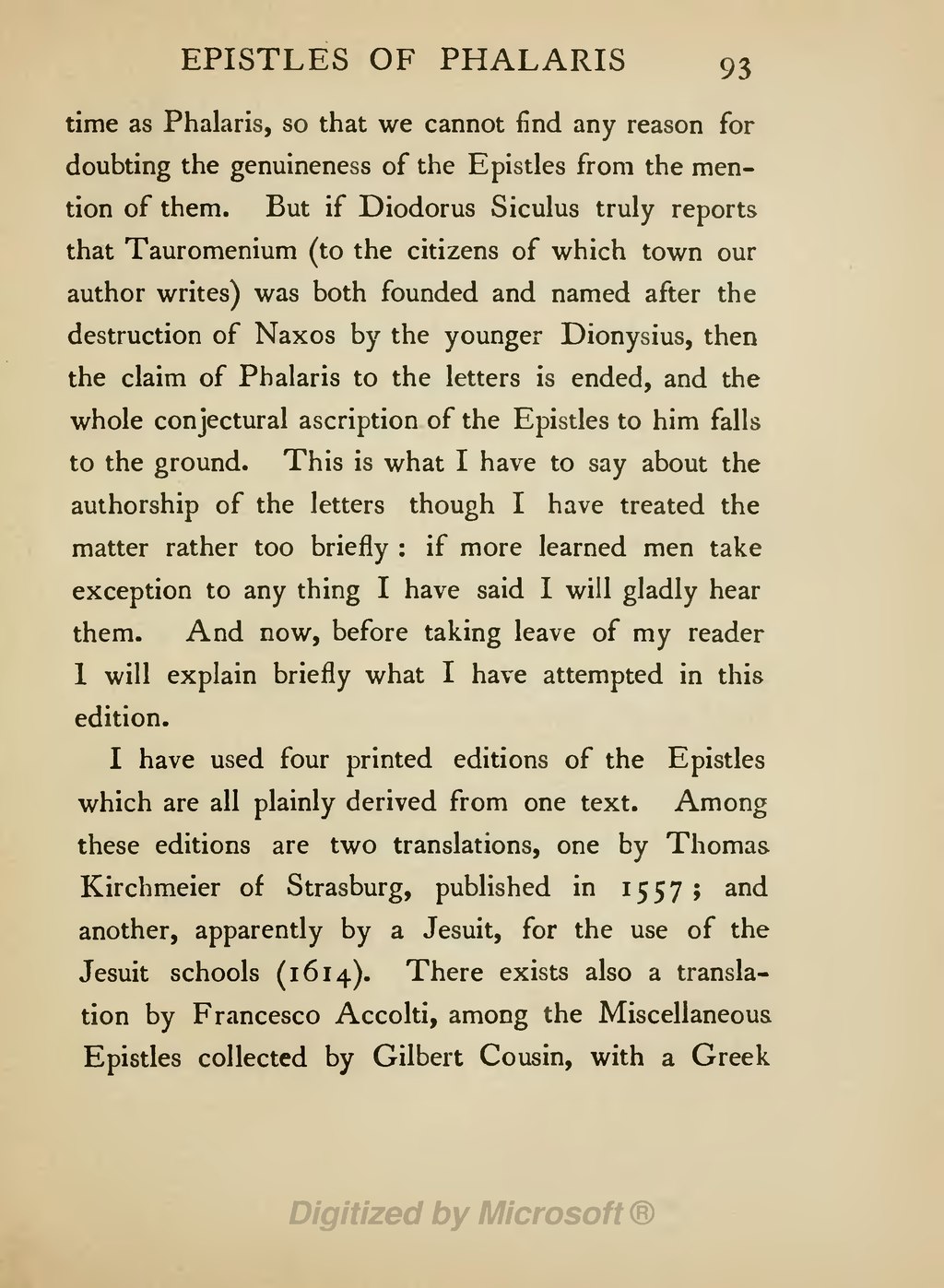time as Phalaris, so that we cannot find any reason for doubting the genuineness of the Epistles from the mention of them. But if Diodorus Siculus truly reports that Tauromenium (to the citizens of which town our author writes) was both founded and named after the destruction of Naxos by the younger Dionysius, then the claim of Phalaris to the letters is ended, and the whole conjectural ascription of the Epistles to him falls to the ground. This is what I have to say about the authorship of the letters though I have treated the matter rather too briefly: if more learned men take exception to any thing I have said I will gladly hear them. And now, before taking leave of my reader 1 will explain briefly what I have attempted in this edition.
I have used four printed editions of the Epistles which are all plainly derived from one text. Among these editions are two translations, one by Thomas Kirchmeier of Strasburg, published in 1557; and another, apparently by a Jesuit, for the use of the Jesuit schools (1614). There exists also a translation by Francesco Accolti, among the Miscellaneous Epistles collected by Gilbert Cousin, with a Greek
